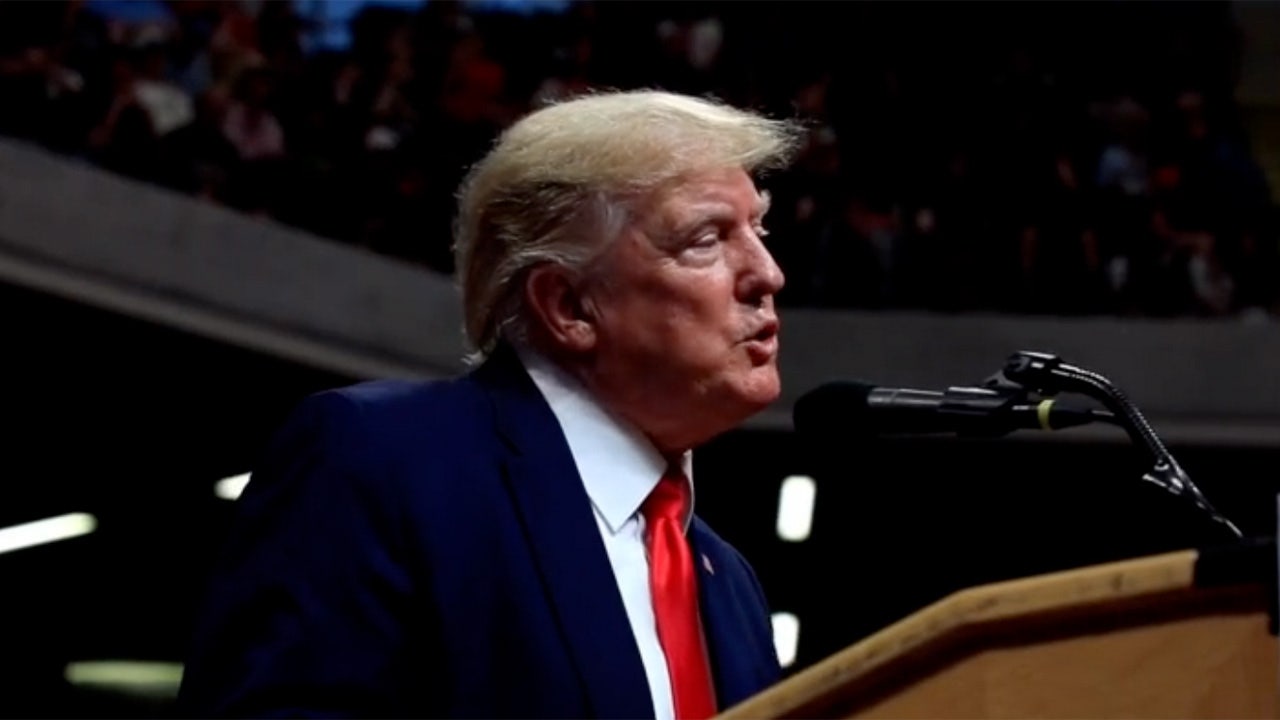Politics
Trump birthright citizenship executive order blocked by third federal judge

Federal Judge Blocks Trump’s Executive Order on Birthright Citizenship
Overview of the Legal Battle
In a significant blow to President Donald Trump’s efforts to reshape U.S. immigration policies, a third federal judge has temporarily blocked the implementation of his executive order aimed at ending birthright citizenship for children of illegal immigrants. U.S. District Judge Joseph N. Laplante of New Hampshire joined judges in Washington state and Maryland in halting the order, arguing that it likely violates the Constitution. This legal setback marks another chapter in the ongoing battle over the Trump administration’s attempts to limit citizenship rights for certain groups of people.
Trump’s executive order sought to reinterpret the 14th Amendment, which clearly states: "All persons born or naturalized in the United States, and subject to the jurisdiction thereof, are citizens of the United States and of the State wherein they reside." The president’s interpretation would effectively deny citizenship to American-born children of undocumented immigrants, a move that has sparked intense debate and legal challenges across the country. Critics argue that Trump overstepped his authority, as such a drastic change to citizenship laws would require a constitutional amendment, not merely an executive order.
The Ruling and Its Implications
Judge Laplante, who was appointed by former President George W. Bush, carefully reviewed the case before issuing his ruling. He concluded that the plaintiffs, including the American Civil Liberties Union (ACLU), had demonstrated a strong likelihood of success in proving the order unconstitutional. Laplante also emphasized that the potential harm to the plaintiffs—primarily the children of undocumented immigrants—would be severe if the order were allowed to go into effect. He noted that the public interest would be served by blocking the order, as it aligns with the fundamental principles of equality and fairness embedded in the Constitution.
The ACLU, which filed the lawsuit on the day of Trump’s inauguration, argued that birthright citizenship is a cornerstone of American values. The organization asserted that the principle ensures all children born in the U.S. have the opportunity to pursue their dreams and contribute to society, regardless of their parents’ legal status. By granting a preliminary injunction, Laplante effectively paused the enforcement of Trump’s order, preserving the status quo while the case proceeds through the courts.
The Broader Debate Over Birthright Citizenship
The concept of birthright citizenship has long been a contentious issue in U.S. politics, particularly as debates over immigration reform intensify. Proponents of the policy argue that it upholds the nation’s founding ideals of inclusivity and equality, while opponents claim it incentivizes illegal immigration and strains public resources. Trump’s executive order reignited this debate, with supporters praising the move as a step toward curbing unauthorized immigration, and critics condemning it as an unconstitutional attack on vulnerable families.
Judge Laplante’s rulings, along with those of judges in Washington and Maryland, highlight the judiciary’s role as a check on executive power. These decisions underscore the importance of the Constitution in guiding policy decisions and protecting the rights of all individuals, regardless of their background. However, the legal battle is far from over, as the Trump administration is expected to appeal the rulings, potentially setting the stage for a Supreme Court showdown.
The Human Impact of the Executive Order
Beyond the legal arguments, the executive order has significant human implications. For the families affected by the order, the uncertainty surrounding their children’s citizenship status creates a climate of fear and instability. Many of these families have lived in the U.S. for years, contributing to their communities and building lives here. Denying their children citizenship would not only strip them of their rights as Americans but also undermine their ability to access education, healthcare, and other vital services.
The ACLU and other advocacy groups have commuters that birthright citizenship is not just a legal principle but a moral imperative. They argue that it reflects the nation’s commitment to ensuring that every child, regardless of their parents’ circumstances, has the opportunity to succeed and thrive. By challenging Trump’s order, these organizations aim to protect not only the rights of these children but also the integrity of the Constitution and the values it represents.
Moving Forward: The Path Ahead
As the legal challenges to Trump’s executive order continue, the nation remains divided on the issue of birthright citizenship. While some view the order as a necessary step to address illegal immigration, others see it as a threat to the very fabric of American society. The courts will play a crucial role in determining the fate of the policy, but the broader debate over immigration reform is unlikely to subside anytime soon.
For now, the preliminary injunctions issued by federal judges provide a temporary reprieve for the families affected by the order. However, the long-term outcome remains uncertain. If the case reaches the Supreme Court, the justices will be tasked with interpreting the 14th Amendment and deciding whether the president has the authority to unilaterally alter the definition of citizenship. The ruling could have far-reaching consequences, shaping the future of immigration policy and the lives of countless families across the country.
In conclusion, the fight over birthright citizenship is a complex and deeply personal issue that touches on themes of identity, fairness, and the rule of law. As the legal battle unfolds, the nation will be forced to confront difficult questions about what it means to be an American and how to balance competing interests in the pursuit of justice and equality. For now, the judiciary has stepped in to block Trump’s executive order, preserving the status quo and ensuring that the rights of all children











